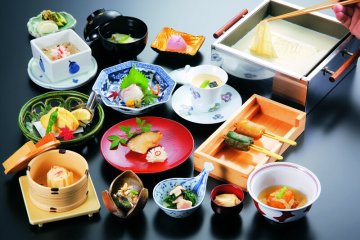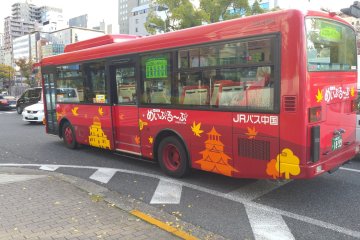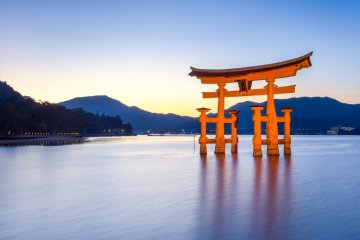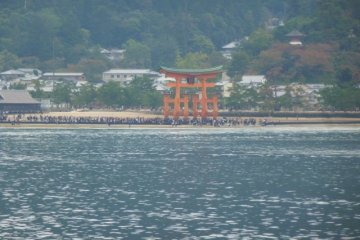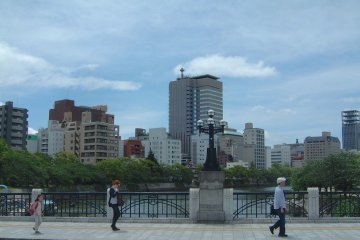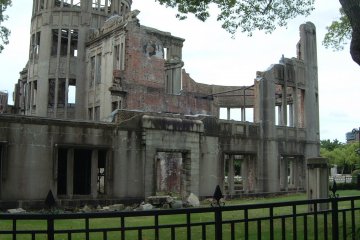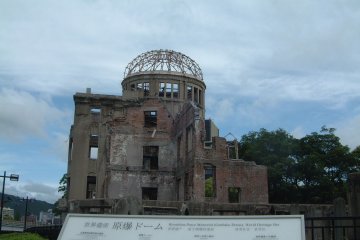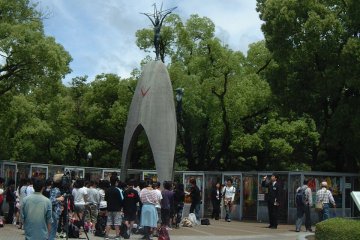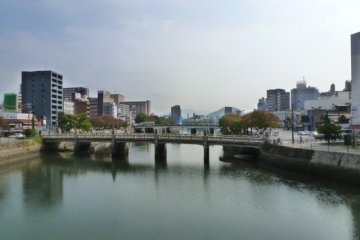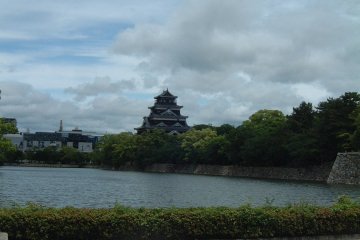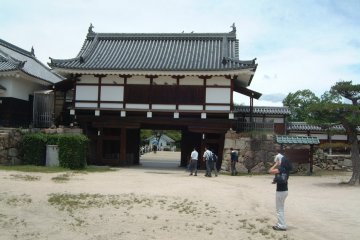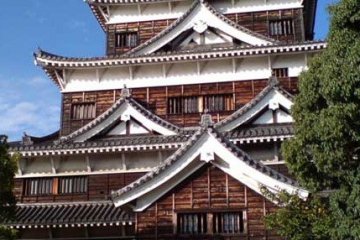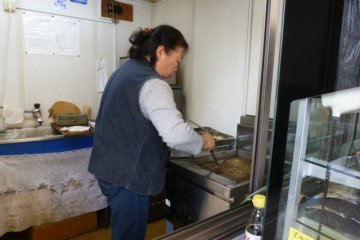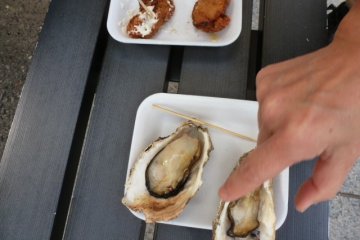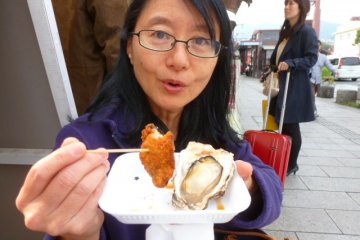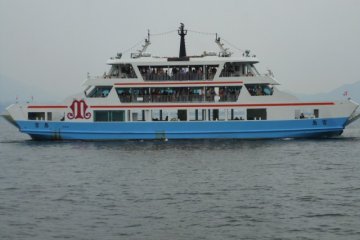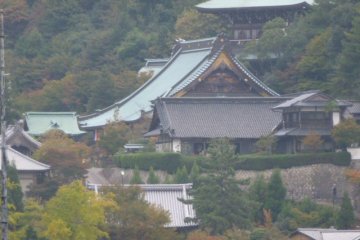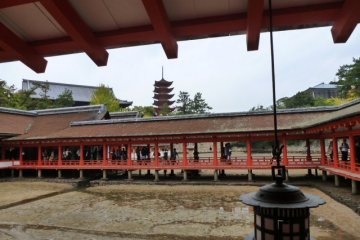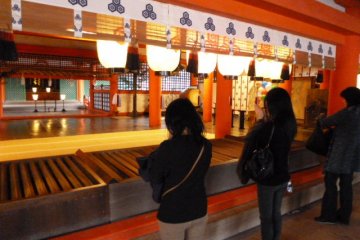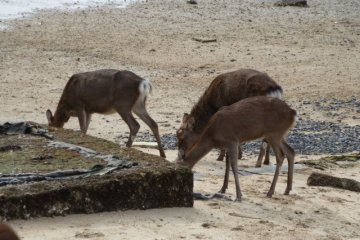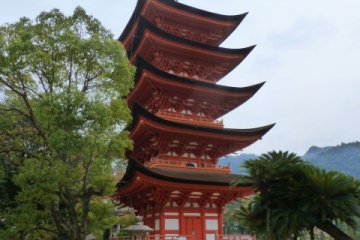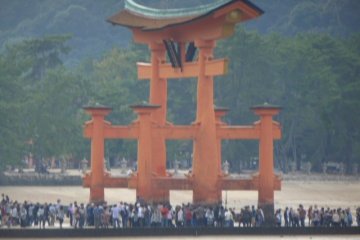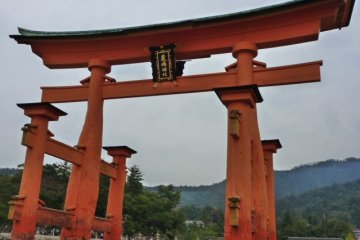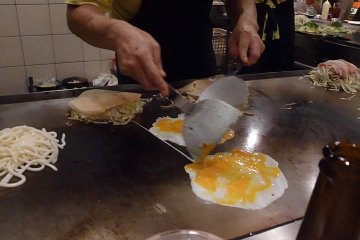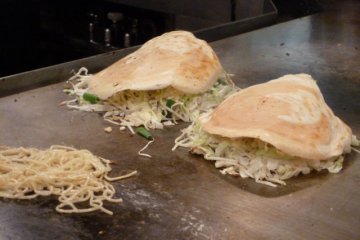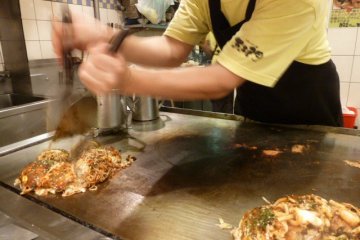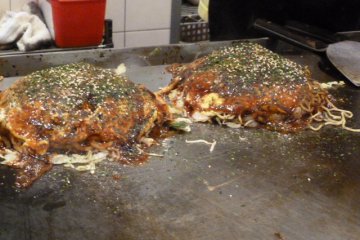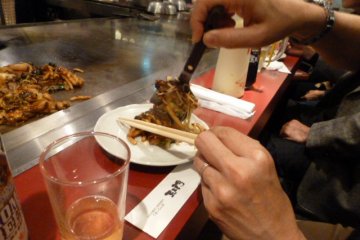I have had the pleasure of visiting Hiroshima on two occasions. The first time was to see Peace Memorial Park and on our return trip, to see the city and Miyajima Island.
After taking a bullet train to Hiroshima station we walked to Peace Memorial Park and the Atomic Bomb Dome, a World Heritage site (ruins from the a-bomb). I listened to an interesting presentation by a survivor. He told Miwa that he was very impressed that I stood there and listened to his presentation with reverence. Although, I could not understand his words the gestures he made told a sad story. His father was killed during the bombing and his area of town was totally destroyed. The park is dedicated to not only show the horrors of nuclear war, but also to advocate peace throughout the world. There are many statues, monuments, and museums around the park.
We walked through the park to Hiroshima Castle (first constructed in 1591, which was also destroyed during the war and rebuilt 13 years later). Because we had to catch the 1:30 bullet train, we were unable to go inside.
On our second trip to Hiroshima we stayed overnight and toured some of the city. It is amazing to see the damage that was done by the A bomb and then see what the city has become. The Japanese people never seem to amaze me in their efforts to overcome tragedy. I saw it here, in Nagasaki, Sendai and Kobe. Two were from bombs and two from earthquakes. In each case the people came together and worked diligently to turn a negative into a wonderful positive. Hiroshima is a very beautiful and modern city of 1.2 million people. If Peace Park and the Atomic Bomb Dome were not here, you would never have known what had happened during the war.
Our main purpose for the second trip was to visit Miyajima Island, one of the top three tourist spots in Japan. Known as the “Island of Gods”, it has a floating shrine (Itsukushima) and the great Torii, which sits in the water during high tide. The shrine is a World Heritage site and was built in 593.
Before our boat ride over we stopped along the street and had some oysters. They were so good that on our return trip we stopped at the same stand and ordered oysters again. Hiroshima is famous for its large tasty oysters.
During our walk on the island to the shrine we encountered many wild deer. This was a weekend and there were thousands of people visiting. We managed to tour Itsukushima shrine, Daishouin Temple, Kiyomori Shrine. We also walked to the pagoda and out onto the beach to see the very famous torii gate
I tried to take pictures from several angles to get most of the people out of the view however, it was very difficult with the ever growing crowd.
By evening we were back in the city and stopped at Goemon restaurant at the station for another Hiroshima delicacy, Okonomiyaki (Japanese pancake). Okonomi in Japanese means, “As You Like.”
What makes Hiroshima pancakes different? They do not combine the ingredients, but layer them and then cover everything with Yakisoba noodles. Typical ingredients are okonomiyaki flour, water, eggs, cabbage, bean sprouts, rashers bacon (thinly sliced), yakisoba noodles (made from scratch), okonomiyaki sauce, mayonnaise, spring onions, seaweed, katsuobushi dried bonito flakes, pickled ginger, and your choice of pork, beef or seafood. They prepare your meal on a grill right in front of you. The preparation is very artful and the chefs really enjoy the attention. The food was excellent along with locally brewed beer.
There are many other attractions in Hiroshima: Shukkei-en Garden, Mitaki Temple, Hiroshimagokoku Shrine, several art museums, Yuka-en Garden, and much more.
To enjoy all that Hiroshima offers, you will want to stay for a few days.



